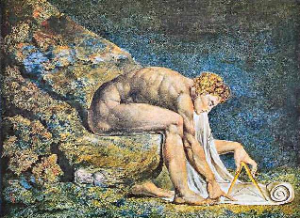
Arquivo para April 29th, 2015
Empiricism and rationalism
 The essential dispute between empiricism, which states that we are dependent on our sensory experience to conquer knowledge, and rationalism which states that the reason independent of experience, at least pure rationalism, is present in the representation of idea, namely that the rational knowledge “a priori” to indicate that it is then independent of experience.
The essential dispute between empiricism, which states that we are dependent on our sensory experience to conquer knowledge, and rationalism which states that the reason independent of experience, at least pure rationalism, is present in the representation of idea, namely that the rational knowledge “a priori” to indicate that it is then independent of experience.
These “tags” universal knowledge of the characteristics are universal, and here rationalism binds to Nominalists while empiricists believe that there is “a priori”, the man is a blank slate (tabula rasa is used by philosophers), and learn experiencing.
The experimentalism came first, with Francis Bacon (1561-1626) renewing Organon, the text on the Nature of Aristotle, for it calls Novum Organum, but lacks critical awareness, which will gradually be built in his disciples to reach David Hume (1711-1776).
It was a philosophical position that resorted to traditional metaphysics, Greek and scholastic, Aristotelian and Thomist, it will be reworked and will be one of the Renaissance impulses.
Between Hume and Bacon, from the historical point of view, Descartes (1596-1650) was a philosopher, physicist and mathematician, his debate with practical issues that judges obscure, writes in a letter to Mersenne, says “Conimbres are long, and good that they were short more (critical since then current even in the Company of Jesus’s schools) and dislikes of the first schools.
In 1619, traveled to United Kingdom and in the opinion of some biographies on 10 November, would have had a vision in a dream of a new mathematical and scientific system, but only in 1637 wrote his Discourse on Method, which are actually meditations.
Later was born in the UK, a philosophical movement that was somewhat the opposite, critical empiricism with John Locke and David Hume, who sees problems in its pure reason and his famous method.
It is the period that arises Isaac Newton (1642) (pictured Divine Geometra of William Brake) and also the final period of the Thirty Years War (1618-1648) that changes the map of Europe.
The idealism of Immanuel Kant (1724-1804) is an attempt to reconcile rationalism and empiricism, he wrote Critique of Pure Reason, but its important work is metaphysics, actually he is the founder of modernity, the little peak will last until Georg Hegel (1770-1831)

